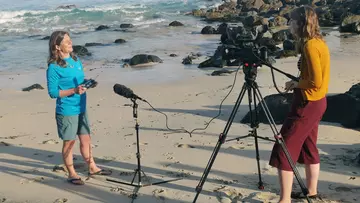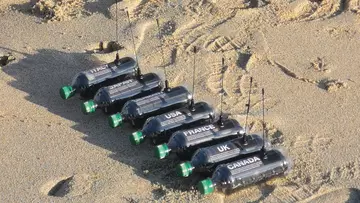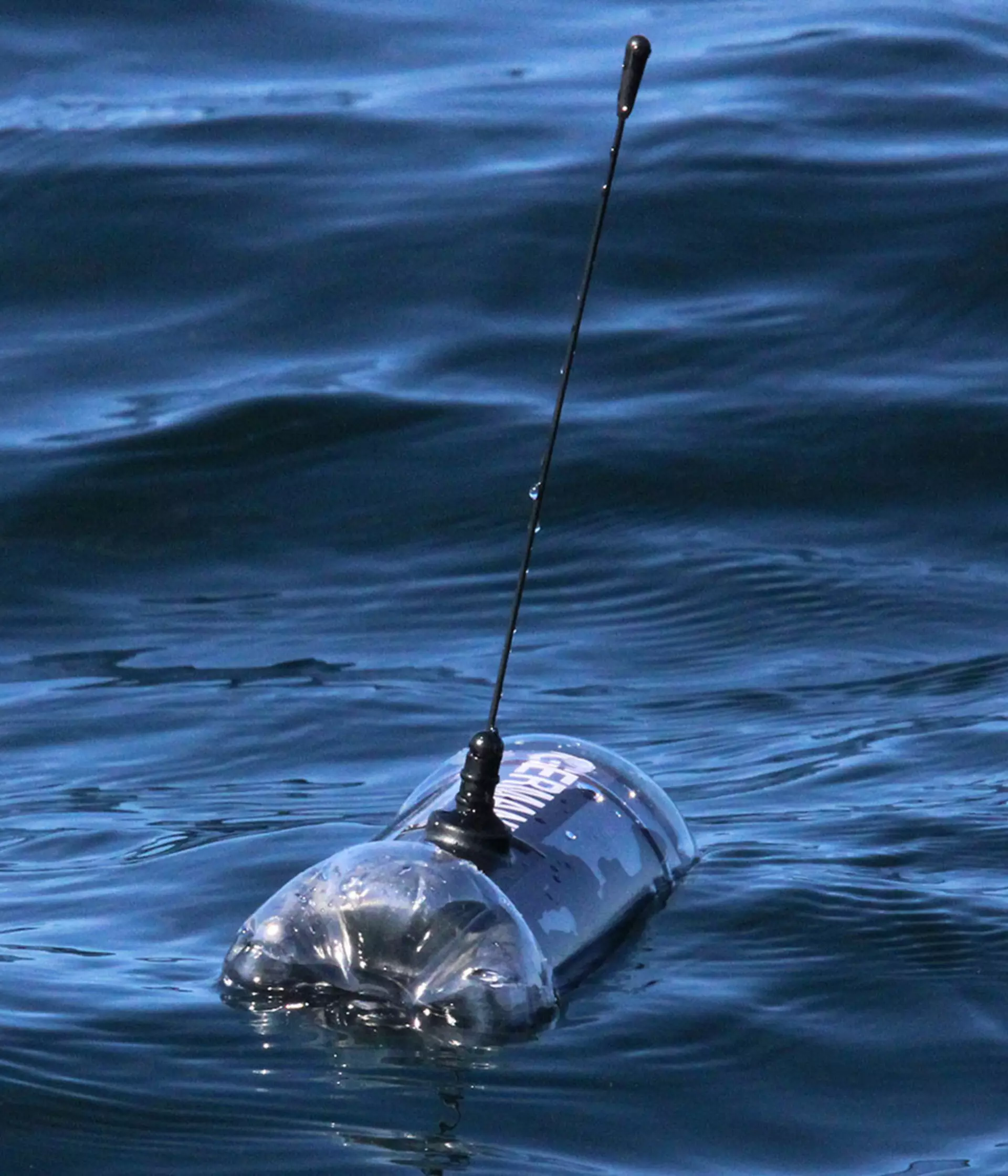
ZSL
Zoological Society of London
Seven reclaimed lemon & lime plastic water bottles will also be joining world leaders at the G7 summit this week, but not on the tables of delegation rooms...
Instead, they will embark on an ocean journey to track and raise awareness of ocean plastic pollution, as each bottle has been fitted with a miniature Horizon satellite tracker and GPS receiver to reveal their location and movement over time. The experiment is part of our #OneLess initiative, which sets out to eradicate unnecessary single-use plastic water bottles by encouraging people to refill instead.
First-time plastic pollution tracking bottles are released directly into the ocean
Released throughout the week from beaches and boats across the Cornish coast, this project is a continuation of the National Geographic Society’s Sea to Source Expedition that resulted in one plastic bottle travelling over 2,845km after it was deployed in the Ganges river system. This is the first time these novel plastic pollution tracking bottles have been released directly into the ocean from UK beaches and coastal waters across Cornwall.

What is the purpose of this project?
The aim of the release is to understand the true movement of plastic waste in and around UK waters, with plastic bottles being one of the most common items of litter found in beach cleans. Dr Phil Hosegood, Associate Professor in Physical Oceanography at the University of Plymouth states: “Plastic waste drifts around the ocean within currents that are enormously challenging to predict because of the range of scales over which they are generated. At small scales, tidal currents flowing past a coastal headland may create eddies (whirlpools) that trap plastic and stop it escaping to the open ocean where, at the large scale, huge current systems like the Gulf Stream move water over hundreds of kilometers. These (bottle) sensors will therefore provide important, and extremely accurate, insights into how currents at different scales interact, particularly in coastal regions where plastic enters the marine environment, and ultimately control where plastic waste ends up.”

How does it work?
The technology inside the bottles was first developed for use tracking green sea turtles via a ZSL collaboration with Arribada to develop a new low-cost and open source satellite tag. By miniaturising and shrinking down the electronics, it was possible to devise what is probably the world’s most technologically advanced water bottle.
Importantly, free access to the design files and schematics for researchers to replicate the bottle’s hardware for their own pollution tracking projects means that others can conduct their own investigations into the flow of marine litter to better understand how it enters and aggregates in river systems and how plastic moves across the ocean.
Follow the bottles on their journeys
Choose a bottle deployment by clicking the grey buttons, press ‘play’ to animate the bottles and click a bottle to read about its journey.
